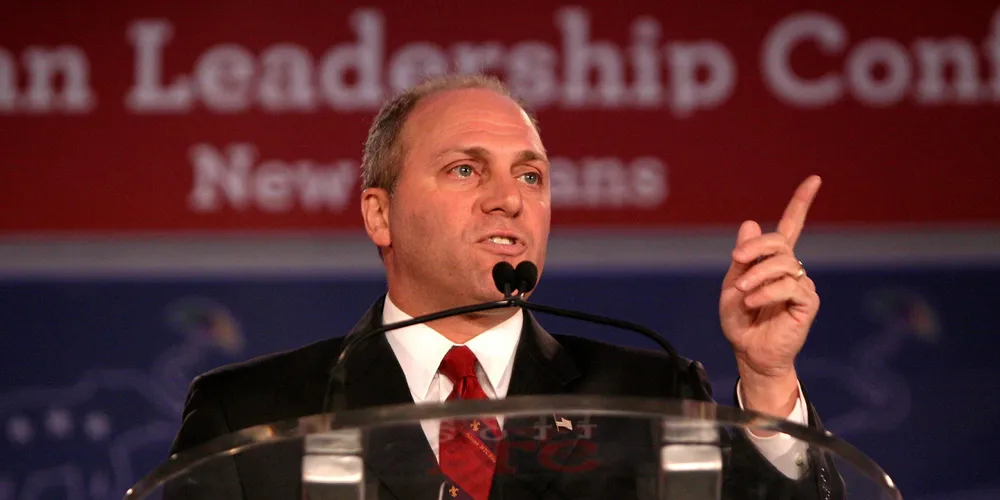'Opening salvo' | Republican permitting reform bill draws early clean energy support
Proposed legislation aiming to streamline environmental reviews for energy and mining projects has raised activist concerns, panned by Democrats as 'unserious'

Republicans in the US House of Representatives have introduced a bill that includes provisions and reforms that will help advance clean energy development, while also requiring the federal government to share offshore wind lease revenue equally with states.
“This legislation would create a predictable and timely federal permitting framework which is critical to the future development of America’s vast clean energy resources,” said Jason Grumet, CEO of American Clean Power Association, a national trade group based in Washington, DC.
It would do this by increasing domestic energy production; boosting output and processing of critical minerals; overhauling the permitting process for all industries; reversing “anti-energy” policies advanced by the Biden administration and streamlining energy infrastructure and exports.
Not surprisingly, the bill is broadly supportive of the oil and natural gas sector and would introduce reforms to expand production of both resources, part of an “all-of-the-above” energy strategy favoured by the party and elected officials in Republican states.
Yet, it also has provisions that are strongly backed by clean energy investors and related domestic manufacturing supply chain companies, the mining sector, as well as some Democrats in Congress.
For example, it reforms the 1970 National Environmental Policy Act (NEPA) permitting process to streamline federal reviews for all sectors of the economy and limits the scope of those reviews to “reasonably foreseeable and economically feasible impacts.”
The bill sets hard deadlines of one year for completion of NEPA environmental assessments and two years for environmental impact statements required by federal law.
It also strives to provide investors with certainty by imposing a 120-day deadline on filing litigation on final agency actions concerning energy and mining projects.
The bill designates a lead federal agency to coordinate the mine permitting process to maximise efficiency and minimise delays for mining projects on federal lands.
It also revamps permitting to enhance recovery, processing, and refining of critical energy minerals, and for construction of energy infrastructure projects such as electric transmission lines within the US and across its borders with Canada and Mexico.
“Failure to enact critical permitting reforms and lift barriers that are hindering our ability to build much-needed transmission puts an estimated 150,000 clean energy jobs at risk. We look forward to working with Congress to build on this important effort,” said Grumet.
Another provision requires the secretary of Interior to set yearly lease sales for geothermal energy and hold replacement sales for any that are missed in a given calendar year.
The bill also requires that the federal government share half the revenue obtained from offshore wind lease sales and other fees with coastal states versus none now. That clause may win support from some Democrats as the party controls most coastal states with offshore wind development.
The bill marks the party’s initial legislative response to President Joe Biden’s energy policies, which they assert are hurting the country, since taking control of the lower house in January.
It also gives Republicans, if they can pass the measure with a slim five seat majority, a platform to coalesce around on energy whose high cost has hurt Biden politically and will likely be a hot campaign issue in the run-up to 2024 national elections. Biden expects to run for a second, four-year term.
The bill will also set the party’s positions for future negotiations on potential energy policy and infrastructure permitting reforms with Biden and Democrats who have a 51-49 advantage in the 100-seat Senate.
As written, the bill could not pass the Senate where Majority Leader Chuck Schumer panned it as too partisan and “unserious.”
Still, he and Biden have publicly supported federal permitting reform, although to what extent is unclear. National environmental groups worry any deal on the issue between the two parties and White House would unleash more fossil fuels production and undermine Biden’s climate goals.
His administration has committed the US to reduce greenhouse gas emissions 50-52% by 2030 from 2005 levels, which is consistent with the Paris climate agreement.
Biden aides have recognised that without a permitting overhaul, the US will struggle to ramp domestic clean energy manufacturing supply chains and significantly reduce dependence on China for upstream battery and solar materials and components.
For now, Biden is backing earlier reform efforts by maverick Democratic Senator Joe Manchin of West Virginia, despite opposition from Republicans who have questioned how effective Manchin's proposed changes would be.
(Copyright)